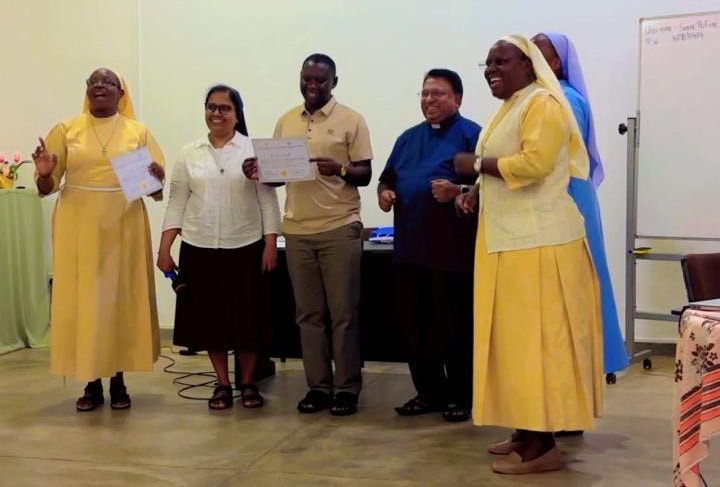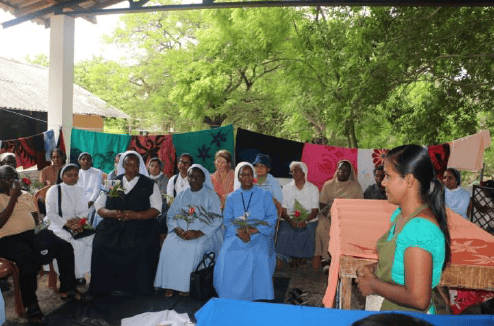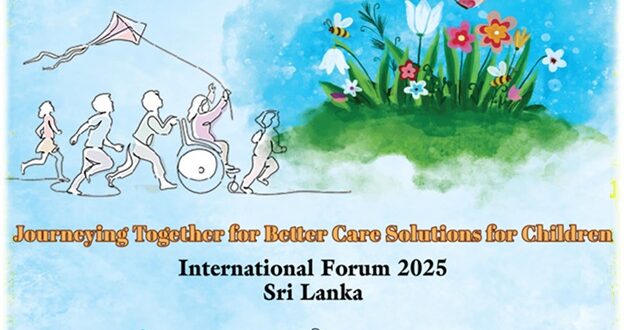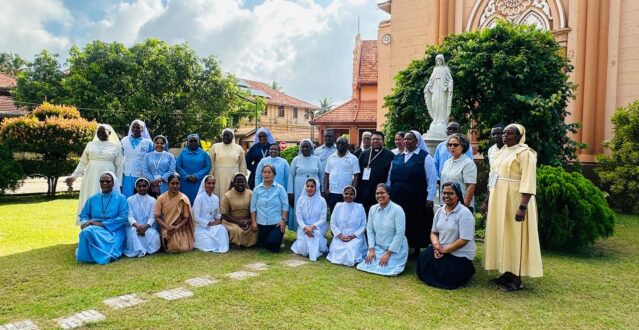Through the coordination of Catholic Care for Children International (CCCI), a one-week intensive training was held in Sri Lanka to strengthen the capacity of Catholic Care for Children (CCC) teams across several countries. The training, titled “Sustainable Fundraising from Donor Agencies through Projects,” brought together representatives from six countries- Uganda, Kenya, Malawi, Zambia, Sri Lanka, and the Philippines.
The primary goal of the training was to empower participants to diversify funding sources, enhance project proposal writing skills, and reduce dependency on single donor streams. The sessions emphasized not only the technical aspects of project development but also strategic thinking for long-term sustainability and impact.
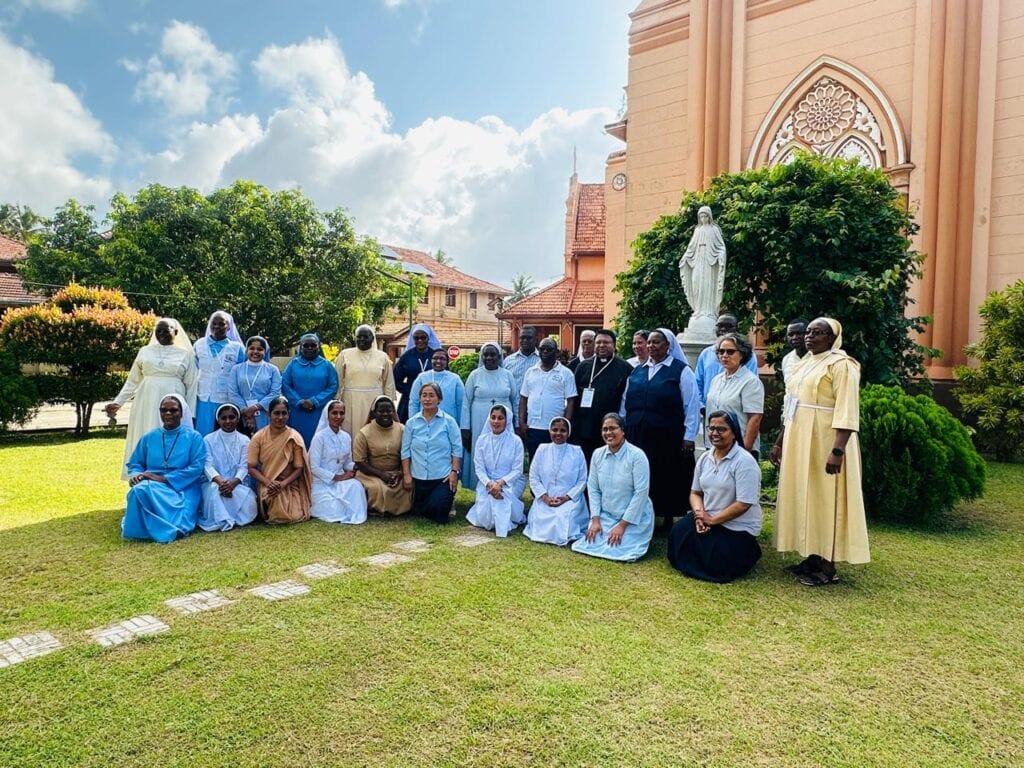
Building Skills in Project Management and Fundraising
Led by Fr. Lord Winner, the training focused on the core elements of project management, highlighting the importance of organizational identity, thematic areas, geographical scope, and governance structures. Participants were introduced to the definition of a project as a “temporary effort to create value through unique products, services, and processes.”
Key components of the training included:
- Problem analysis: Understanding how to frame a problem and convert it into a clear statement of purpose.
- Objectives and outputs: Learning to transform problem causes into project objectives, and secondary causes into outputs.
- Logical Framework Approach (LFA): Participants explored how to design a project using object analysis, alternative analysis, and logical sequencing of activities.
The training provided practical tools for developing credible, fundable proposals. Participants engaged in exercises to map problems, identify indicators, define goals, and propose realistic and measurable outcomes.
Strategic Planning and Implementation
One major focus was on sequencing project activities, assigning responsible personnel, and identifying timelines and resources. Fr. Winner emphasized the significance of identifying the critical path in project timelines—the sequence of tasks that determines the project’s duration—and slack time, which allows flexibility in scheduling and risk management.
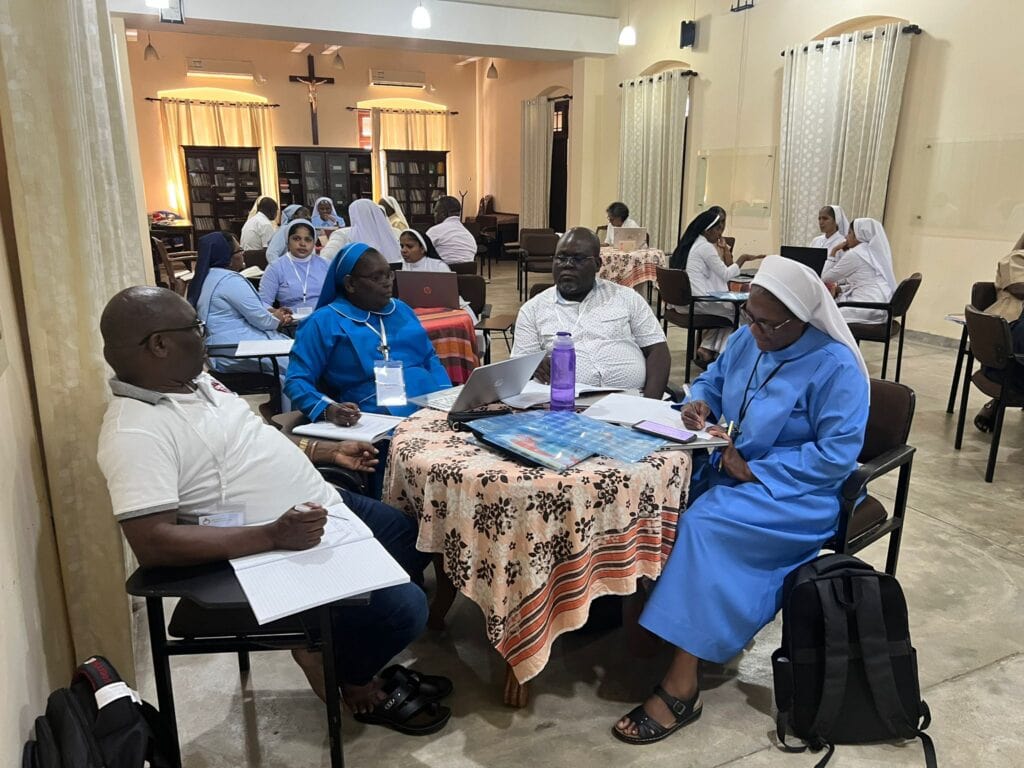
Participants were also guided through the project proposal format, covering areas such as:
- Project goal and objectives
- Target groups and geographical context
- Stakeholders and partnerships
- Risk analysis and mitigation
- Budgeting, human resources, monitoring, and evaluation
- Documentation and annexes
The training also encouraged the establishment of project management policies within organizations, providing a structured approach to implementing and sustaining projects over time.
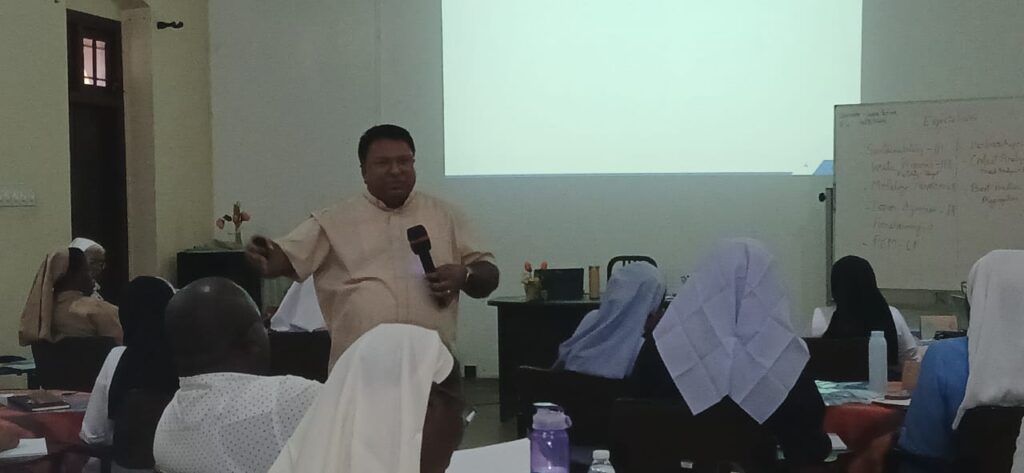
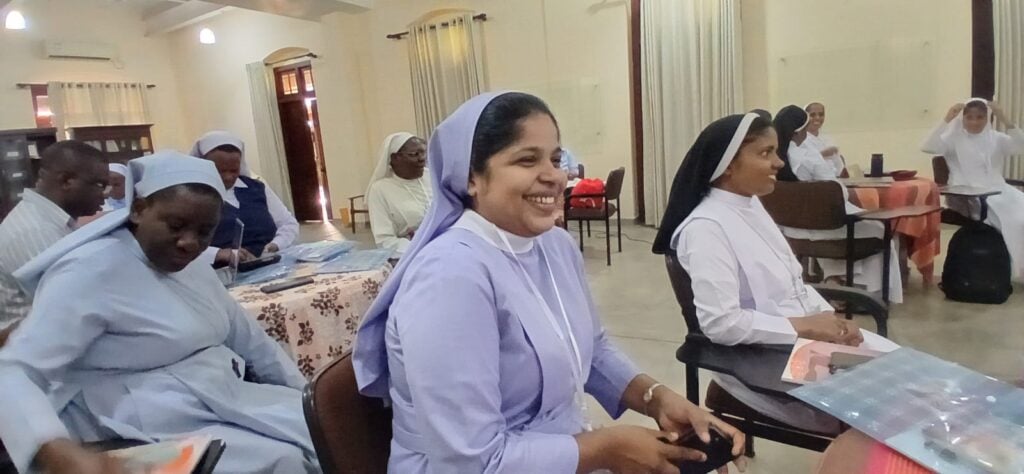
A Holistic Approach to Capacity Building
In response to the shifting donor landscape and increased competition for resources, the training highlighted the importance of building strategic partnerships and adopting a multi-donor approach. CCCI’s training initiative is part of its broader mission to equip religious congregations engaged in care for children with tools to lead systemic change and advance care reform globally.
The session in Sri Lanka reaffirmed the crucial role of capacity building in achieving long-term impact. Participants left the training equipped with practical knowledge, strategic insights, and renewed commitment to strengthening family- and community-based care systems for children.
Reflecting on the experience, Sr. Pasilisa Namikoye, Executive Secretary of the Association of Sisterhoods of Kenya, shared:
“The training process was holistic. As a result, we were able to learn all the details of project management and successfully developed a complete project proposal.”
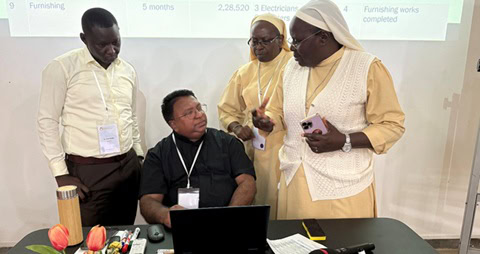
Her statement captures the essence of what the training sought to achieve—equipping participants with the confidence and competence to mobilize resources effectively and implement impactful care programs.
At the conclusion of the week-long training, participants were formally graduated, marking the successful completion of the capacity-building workshop. This graduation celebrated their commitment to enhancing their skills in resource mobilization and project management, equipping them to lead sustainable initiatives in their respective countries.
The training not only fostered learning but also deepened collaboration among Catholic care actors across regions, contributing to the shared vision of ensuring that every child grows up in a safe, loving, and nurturing family environment.
